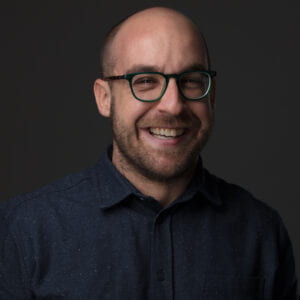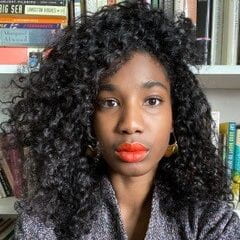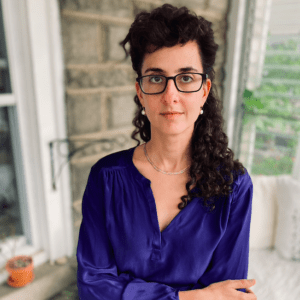Organizers
Rosalind Fredericks

Rosalind Fredericks is Associate Professor of Geography and Development Studies at NYU’s Gallatin School of Individualized Study. Her research focuses on urban citizenship, political ecology, discard studies, and infrastructure in contemporary Dakar, Senegal. Her book Garbage Citizenship: Vital Infrastructures of Labor in Dakar, Senegal (Duke University Press, 2018) was awarded the Toyin Falola Africa Book Award by the Association of Global South Studies in 2019. It chronicles Dakar’s volatile municipal garbage politics in the wake of structural adjustment. Her current research, supported by the National Science Foundation, examines informal recycling labor at the city’s dump Mbeubeuss. After completing her PhD in geography at the University of California, Berkeley, Fredericks was a postdoctoral research scholar with the Committee on Global Thought at Columbia University. Fredericks’s research has won major funding support from the Social Science Research Council, Fulbright-Hays, and the National Science Foundation, and she was NYU’s Stephen Charney Vladeck Junior Faculty Fellow 2015-2016. She edited two books with Mamadou Diouf: Les Arts de la Citoyenneté au Sénégal: Espaces Contestés et Civilités Urbaines (Editions Karthala, 2013) and The Arts of Citizenship in African Cities: Infrastructures and Spaces of Belonging (Palgrave MacMillan, 2014).
Mohammed Rafi Arefin

Mohammed Rafi Arefin is an Assistant Professor/Faculty Fellow in Urban Geography at the NYU Gallatin School of Individualized Study. His research and teaching combine insights from infrastructure studies, urban political ecology, and discard studies to explore the politics of urban waste and sanitation. His recent publications include “Infrastructural Discontent in the Sanitary City: Waste, Revolt, and Repression in Cairo” which was published in Antipode in 2019 and “The State, Sewers, and Security: How does the Egyptian State Reframe Environmental Disasters as Terrorist Threats?” which was published in the Annals of the AAG also in 2019. In the Fall of 2020, Rafi will be an Assistant Professor in the Department of Geography at the University of British Columbia.
Robin Nagle
Robin Nagle is clinical professor in Liberal Studies and affiliated faculty in Environmental Studies and Anthropology at NYU, and she is the anthropologist-in-residence for New York City’s Department of Sanitation. Her most recent book is Picking Up, an ethnography of the DSNY (FSG 2014). Nagle is a co-founder, with Max Liboiron and Samantha MacBride, of the Discard Studies blog and website. From 1996 to 2016, she was director of NYU’s Draper Interdisciplinary Master’s Program in Humanities and Social Thought (now Experimental Humanities and Social Engagement).
Speakers
Mierle Laderman Ukeles

Since 1977, Mierle Laderman Ukeles has been the official, unsalaried artist-in-residence of the City of New York Department of Sanitation. Her artwork, crashing boundaries between labor and performance, system and spirit, unveils connections between feminism, work and workers, the city, and the environment. Her works are in the permanent collections of the Whitney Museum; Guggenheim Museum; the Art Institute of Chicago (promised gift); Migros Museum, Zurich; Wadsworth Athenaeum Museum, Hartford; Smith College Museum, Northampton; and the Jewish Museum, New York City. She is represented by Ronald Feldman Gallery in New York. She exhibits and lectures internationally and has received honorary doctorates from the Rhode Island School of Design, the Maine College of Art, and in May, 2019, from the School of the Art Institute of Chicago where she gave the Commencement Address. Two books have recently been published about her work: MIERLE LADERMAN UKELES: MAINTENANCE ART, Prestel, 2016 and SEVEN WORK BALLETS, Sternberg, 2015. Ukeles believes art creates freedom and asks whether we can design modes of survival—for a thriving planet, not an entropic one—that don’t crush our personal and civic freedom and silence the individual’s voice.
Max Liboiron
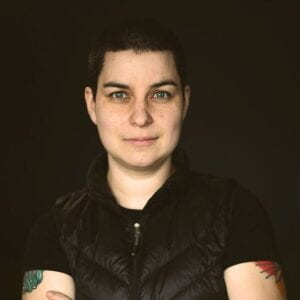 Dr. Max Liboiron is an Associate Professor in Geography at Memorial University, where they direct the Civic Laboratory for Environmental Action Research (CLEAR). CLEAR develops feminist and anti-colonial methodologies to study marine plastic pollution. Liboiron is author of Pollution is Colonialism (Duke University Press, 2021). Their new book, with co-author Josh Lepawsky, Discard Studies (MIT Press), will be out in the spring/summer of 2022.
Dr. Max Liboiron is an Associate Professor in Geography at Memorial University, where they direct the Civic Laboratory for Environmental Action Research (CLEAR). CLEAR develops feminist and anti-colonial methodologies to study marine plastic pollution. Liboiron is author of Pollution is Colonialism (Duke University Press, 2021). Their new book, with co-author Josh Lepawsky, Discard Studies (MIT Press), will be out in the spring/summer of 2022.
Brenda Chalfin

Brenda Chalfin directs the Center for African Studies at the University of Florida and holds appointments as Professor of Anthropology and African Studies. Her scholarship brings together cultural anthropology, geography, and political economy to offer new perspectives on political life in contemporary African states. Chalfin’s research addresses the complex functioning of national boundaries and frontiers, the popular production of infrastructure and urban public goods, non-territorial and maritime sovereignty, and the changing political valence of waste in the context of late-capitalism. Chalfin has held fellowships at the Institute for Advanced Study in Princeton, New Jersey, the Woodrow Wilson International Center for Scholars, and the University of Ghana’s Institute of African Studies and been a recipient of Fulbright, Wenner-Gren, and National Science Foundation grants. She earned her PhD in anthropology at the University of Pennsylvania. Her publications include Neoliberal Frontiers: An Ethnography of Sovereignty in West Africa (University of Chicago Press, 2010), Shea Butter Republic: State Power, Global Markets, and the Making of an Indigenous Commodity (Routledge, 2004), and she is currently completing a new book, Infrastructure and Vital Politics on Ghana’s Urban Frontier, which explores alternative infrastructures of waste management in urban Ghana.
Samantha MacBride
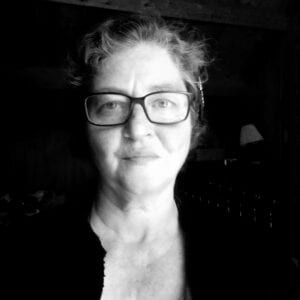
Samantha MacBride teaches Urban Environmentalism at the Marxe School of International and Public Affairs, Baruch College, CUNY, and worked for over 20 years in research and operations at the NYC Department of Sanitation. She has a doctorate in sociology from NYU and studied biology as an undergraduate at Johns Hopkins. Samantha’s interests center on measurement and characterization methods, biological materials flows, plastics pollution reduction, regionalization of recycling economies, and waste colonialism. Samantha has also recently begun research on the contemporary UFO phenomenon in the United States, and its relation to questions of ecology and discards.
Presenters, Discussants, and Moderators
Rob Aitken

Rob Aitken is a Professor in the Department of Political Science at the University of Alberta in Edmonton, Canada. His work lies at the intersection of cultural economy, the social studies of finance and governmentality studies. He is interested in the relationship between global financial markets and everyday cultures as well as the broad ways in which financialized objects are constituted, commodified and allowed to decompose. His work has been published in Millennium, Cultural Studies, Topia, The Review of International Political Economy, The Journal for Cultural Research and The Review of International Studies. His most recent book, Fringe Finance, was published in 2015. His current research focuses on the imperial histories of insurance and the contemporary relationship between financial value and waste.
María Arquero de Alarcón
María Arquero de Alarcón is an Associate Professor of Architecture and Urban and Regional Planning and Director of the Master of Urban Design at the University of Michigan Taubman College. Her research-based, collaborative design practice MAde Studio addresses urgent socio-environmental challenges and engages traditionally underrepresented groups. Through the combination of grant-funded research initiatives, urban design experimentation, and small, site-specific built interventions, MAde Studio focuses on the advancement of sustainable, cultural value and integrates the knowledge co-generated with local partners, collaborators and residents. Her work is part of the edited volumes The Third Coast Atlas and Mapping Detroit; the journals Applied Geography, Sustainability, Michigan Journal of Sustainability, Architect Magazine’s “Next Progressives,” PLOT, Green and Building Design. She holds a professional degree in Architecture and Urbanism (Madrid Polytechnic University), a Master in Landscape Architecture (E.T.H. Zurich), and a Master of Landscape Architecture in Urban Design (Harvard University).
Gianpaolo Baiocchi

Gianpaolo Baiocchi is a sociologist and an ethnographer interested in questions of politics and culture, critical social theory, and cities. He has written about and continues to research instances of actually existing civic life and participatory democracy. His most recent work is Popular Democracy: The Paradox of Participation (Stanford University Press, 2016), which he co-authored with Ernesto Ganuza. The Civic Imagination: Making a Difference in American Political Life (co-authored with Elizabeth Bennett, Alissa Cordner, Stephanie Savell, and Peter Klein; Paradigm Publishers, 2014) examines the contours and limits of the democratic conversation in the US today. He is also the author, along with Patrick Heller and Marcelo K. Silva, of Bootstrapping Democracy: Experiments in Urban Governance in Brazil (Stanford University Press, 2011) and Militants and Citizens: Local Democracy on a Global Stage in Porto Alegre (Stanford University Press, 2005). He is the editor of Radicals in Power: Experiments in Urban Democracy in Brazil (Zed Press, 2003). An engaged scholar, Baiocchi was one of the founders of the Participatory Budgeting Project and continues to work with groups improving urban democracy. He heads Gallatin’s Urban Democracy Lab, which launched in 2014 and which provides a space for scholars and practitioners to collaborate and exchange ideas for cultivating just, sustainable, and creative urban futures.
Olivier Barsalou
OLIVIER BARSALOU is an Assistant Professor in the Law Department at the Université du Québec à Montréal (Canada). His current research project centers on the role of international law in the advent of the global environmental crisis. Empirically, he investigates how the rules international environmental law responds to the global environmental crisis, and, more particularly, to the rapid growth of waste production around the globe. Theoretically, he aims to explore how international law functions both as a strategy and a technique of waste displacement, and to document the emergence of global waste law. With his colleague, Michael H. Picard, he has published an initial article titled International Environmental Law in an Era of Globalized Waste in the Chinese Journal of International Law (2018), and, more recently, a chapter titled Exploring the planetary boundaries’ wasteland: international law and the advent of the Molysmocene Research Handbook on Law, Governance and Planetary Boundaries (Edward Elgar, 2020, Louis J. Kotzé & Duncan French, eds.).
Hanna Baumann

Hanna Baumann is a Leverhulme Early Career Fellow at the Bartlett’s Institute for Global Prosperity, University College London. She completed her PhD on the contested nature of urban mobility in East Jerusalem at Cambridge University’s Centre for Urban Conflicts Research in 2017. Her current work examines the role of infrastructures, including waste services, in the exclusion and incorporation of non-citizens and refugees in Beirut and Berlin.
Sven Bergmann

Sven Bergmann is a cultural anthropologist currently working as a research associate at the German Maritime Museum in Bremerhaven. His research interests range from feminist technoscience, kinship, reproduction, and the body to political ecology, marine and environmental anthropology and economies of waste. His post-doc research has dealt with the problematisation of plastics in the ocean and other environments. After research positions in Berlin and Bremen, he currently coordinates the exhibition and research area Ship and Environment at the Maritime Museum. Furthermore, he coordinates, together with his colleague Philipp Grassel, the EU project “North Sea Wrecks”, which deals with the toxic legacy of world war wrecks and munitions in the North Sea.
Dawn Biehler

Dawn Biehler is Associate Professor of Geography and Environmental Studies and Affiliate Faculty in Gender, Women’s, and Sexuality Studies at University of Maryland, Baltimore County. She is author of Pests in the City: Flies, Bed bugs, Cockroaches, and Rats, published in 2013 by University of Washington Press. She is currently writing up findings from two major projects; one is a six-year collaborative study of environmental justice and mosquito ecology in West Baltimore. The other is a historical geography of human justice, urban environmentalism, and multi-species belonging in the New York’s Central Park.
Waqas H. Butt

Waqas H. Butt is an anthropologist at University of Toronto Scarborough whose work focuses on the intersections of caste, labor, infrastructures, and waste in urban Pakistan. Based on long-term ethnographic fieldwork in Lahore and the Punjab, his current book project examines the ways in which waste workers, who are drawn predominantly from low or non-caste (Dalit) groups, have become essential components of urban life through the everyday and intimate workings of waste infrastructures. His research has been funded by the Wenner-Gren Foundation, the American Institute of Pakistan Studies, and the University of California, San Diego. His work has appeared in academic journals such as CITY and ILWCH, as well as newspapers and magazines in Pakistan.
Dean Chahim
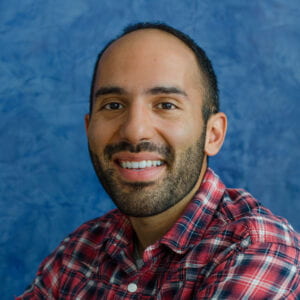
Dean Chahim is a postdoctoral fellow in the Princeton-Mellon Initiative in Architecture, Urbanism, and the Humanities at Princeton University. Trained in both civil engineering and anthropology, his research and teaching broadly focus on the relationship between engineering, political power, and the production of urban environments. Drawing on ethnographic and historical research, his current book project examines how state engineers in Mexico City have made flooding into an object and mode of governance to enable the city’s explosive growth from the mid-20th century to the present. His work from this project is forthcoming in Antipode and has appeared in American Ethnologist, Logic Magazine, and has been cited by numerous media outlets in Mexico. In the Fall of 2022, he will be an Assistant Professor in the Department of Sociology and Anthropology at the University of Texas at El Paso.
Syantani Chaterjee

Syantani Chatterjee is an anthropologist whose research focuses on questions of embodiment, governance, and belonging, with an expertise in South Asia and postcolonial studies. She is a Postdoctoral Research Scholar at Columbia University (2021-2023), and was an Andrew Mellon Postdoctoral Fellow at the University of Pennsylvania under the H+U+D Initiative (2020-2021). She received a doctorate in Anthropology from Columbia University in 2020. Her book project, The New Gateway of India: Toxicity, Belonging, and Governance in Contemporary Mumbai, draws on 18 months of archival and ethnographic research in Mumbai (India) to study the material and non-material impacts on communities of living and working in toxic conditions. The Andrew Mellon Foundation, the Lindt Dissertation Completion Fellowship, the American Institute of Indian Studies’ Junior Fellowship for Dissertation Fieldwork, and Columbia University’s Dean’s Fellowship have funded her research. She received a Best Thesis Award in her M.A. (2013), and a Distinction in her M.Phil (2016). Her research has appeared in academic journals such as ILWCH and PoLAR.
Sybil Cooksey
Sybil Newton Cooksey is a clinical assistant professor at New York University’s Gallatin School, where she teaches courses in black studies on varied topics, including critical humanism and slavery and science. Her current research, on shipwrecks in Cabo Verde, and “refuse” slave markets along the African Atlantic coast, are part of a larger book project on the ecologies of the Portuguese slave trade. Prior to coming to NYU, Dr. Cooksey earned an M.S. in Urban Studies from the University of New Orleans. There she worked with the Louisiana Environmental Education and Resource Program to establish community councils, organize workshops around toxic release inventories, and seek EPA grants to fund water testing training for residents of parishes along the lower Mississippi River industrial corridor.
Steven Corey
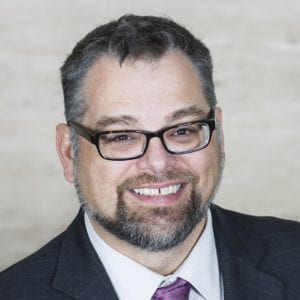
Steven H. Corey is Professor of History and Dean of the School of Liberal Arts and Sciences at Columbia College Chicago. He served previously as Professor and Chair of the Department of Urban Studies at Worcester State University in Massachusetts. Corey holds a PhD in History from New York University (GSAS 1994) where he wrote the dissertation, “King Garbage: A History of Solid Waste Management in New York City, 1881-1970.” He served as research curator for the exhibition Garbage! The History and Politics of Trash in New York City (The New York Public Library, 1994-1995). He is co-author with Elizabeth Fee of Garbage! The History of Politics and Trash in New York City (NYPL, 1994); with Lisa Krissoff Boehm of America’s Urban History (Routledge, 2015); co-editor with Krissoff Boehm of The American Urban Reader: History and Theory (Routledge, 2011, 2nd ed., 2020); and Carl Zimring of Coastal Metropolis: Environmental Histories of Modern New York City (University of Pittsburgh Press, 2021).
Daniel Cumming
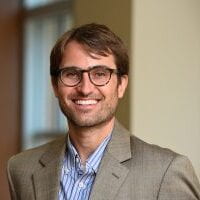 Dr. Cumming is a postdoctoral fellow with the Program in Racism, Immigration, and Citizenship at Johns Hopkins University. His scholarship explores the intersections of housing policy, healthcare, environmental justice, racial capitalism, and metropolitan history, and he is currently working on a book based on his dissertation, “Health is Wealth: The Rise of a Medical Metropolis and the Remaking of Racial Inequality in Twentieth Century Baltimore.” Cumming received his Ph.D. in twentieth-century U.S. history from New York University, and he is a former fellow with the Jefferson Scholars Foundation, the Hagley Museum and Library, the National Library of Medicine, and the Maryland Center for History and Culture. Prior to graduate study,he taught ninth and tenth grade English at Carver Vocational Technical High School in Baltimore City from 2009-2012.
Dr. Cumming is a postdoctoral fellow with the Program in Racism, Immigration, and Citizenship at Johns Hopkins University. His scholarship explores the intersections of housing policy, healthcare, environmental justice, racial capitalism, and metropolitan history, and he is currently working on a book based on his dissertation, “Health is Wealth: The Rise of a Medical Metropolis and the Remaking of Racial Inequality in Twentieth Century Baltimore.” Cumming received his Ph.D. in twentieth-century U.S. history from New York University, and he is a former fellow with the Jefferson Scholars Foundation, the Hagley Museum and Library, the National Library of Medicine, and the Maryland Center for History and Culture. Prior to graduate study,he taught ninth and tenth grade English at Carver Vocational Technical High School in Baltimore City from 2009-2012.
Robyn d’Avignon
 Robyn d’Avignon is Assistant Professor of History at NYU. She is an anthropologist and historian of West Africa. She is currently finishing her first book project, A Ritual Geology, which examines the pre-colonial and colonial roots of conflicts over mineral discoveries in the context of an ongoing gold mining boom in Senegal, Guinea, and Mali. She teaches on the history of the environment and technology and African history for all time periods.
Robyn d’Avignon is Assistant Professor of History at NYU. She is an anthropologist and historian of West Africa. She is currently finishing her first book project, A Ritual Geology, which examines the pre-colonial and colonial roots of conflicts over mineral discoveries in the context of an ongoing gold mining boom in Senegal, Guinea, and Mali. She teaches on the history of the environment and technology and African history for all time periods.
Catherine Fennell

Catherine Fennell is an Associate Professor of Anthropology at Columbia University. She is an urban anthropologist with a joint appointment in the Center for the Study of Ethnicity and Race. Her work examines how the social and material legacies of twentieth century urbanism shape the politics of social difference, collective obligation, and utopian imagination in the contemporary United States. She has special interests in the fate and futures of subsidized housing, the transformation of urban built environments, and experiences of the urban sensorium. Her writing combines classic and contemporary anthropological thought with fine-grained ethnographic and archival research to animate a problem that resonates beyond the late industrial cities where she has conducted research: How should we understand the ethical potentials of urban life in places characterized by intense forms of social abandonment, economic disinvestment, environmental degradation, and racial and economic segregation? Her first book, Last Project Standing, won the 2016 Book Prize from the Association of Political and Legal Anthropology.
Asher Ghertner

Asher Ghertner is an Associate Professor in the Department of Geography and Director of the South Asian Studies Program at Rutgers University. He has carried out long-term ethnographic research in informal settlements in Delhi, which culminated in his book Rule by Aesthetics: World-Class City Making in Delhi (Oxford, 2015), a study of mass displacement, bourgeois environmentalism, and the aesthetic politics of defining who belongs and doesn’t belong in the world-class city. He is the co-editor of Futureproof: Security Aesthetics and the Management of Life (Duke, 2020) and the forthcoming Land Fictions: The Commodification of Land in City and Country (Cornell, 2020). He has also written extensively on urban informality, the politics of property, Indian urbanism, and gentrification. His current project focuses on the cultural politics of air pollution in Delhi, from which recent articles have appeared in Economic and Political Weekly, positions: asia critique, and Public Culture.
Philip Grassel
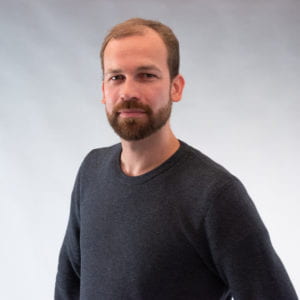 Philipp Grassel is a Maritime Archaeologist and studied from 2004 to 2012 Prehistoric and Historic Archaeology, Classical Archaeology, History of Arts and Medieval and Early Modern History at the University of Kiel. From 2013 to 2017 he did his PhD in Prehistoric and Historic Archaeology at the University of Kiel and received in 2014 his license as a certified scientific diver. He participated, since 2015, in different maritime archaeological and interdisciplinary research projects. Since 2018 he works, together with his colleague Sven Bergmann, at the EU project “North Sea Wrecks”. Furthermore he works since 2021 at the British-German Research project “LIFTE – Looking in from the Edge”, which investigates the place of the Orkney and Shetland Islands in European trade networks of the 15th to 18th century.
Philipp Grassel is a Maritime Archaeologist and studied from 2004 to 2012 Prehistoric and Historic Archaeology, Classical Archaeology, History of Arts and Medieval and Early Modern History at the University of Kiel. From 2013 to 2017 he did his PhD in Prehistoric and Historic Archaeology at the University of Kiel and received in 2014 his license as a certified scientific diver. He participated, since 2015, in different maritime archaeological and interdisciplinary research projects. Since 2018 he works, together with his colleague Sven Bergmann, at the EU project “North Sea Wrecks”. Furthermore he works since 2021 at the British-German Research project “LIFTE – Looking in from the Edge”, which investigates the place of the Orkney and Shetland Islands in European trade networks of the 15th to 18th century.
Louise Harpman

Louise Harpman is a Professor of Architecture, Urban Design, and Sustainability at NYU’s Gallatin School of Individualized Study and the Robert F. Wagner Graduate School of Public Service. She is a founding director of the design research consortium Global Design NYU (with Peder Anker, Mitchell Joachim) and a founding director of the NYU academic activist group openEARTHstudio (with Karen Holmberg, Eugenia Kisin).To pursue applied research projects, she is Principal of Louise Harpman__PROJECTS, whose current work focuses on net zero energy buildings and micro-housing. Prior to PROJECTS, Louise was, for twenty years, a founding Principal in the award-winning architecture and design firm Specht Harpman.
Karen Holmberg

Karen Holmberg is an archaeologist who specializes in volcanic contexts to examine the long-term experiences humans have had with environments that change unpredictably. She is interested in how the past can aid understanding of the environmental challenges and crises of the 21st century, particularly in the Global South. Holmberg received her PhD from Columbia University after which she taught at Brown and Stanford Universities. Her doctoral work was funded by Fulbright, Mellon, and Wenner-Gren awards. She is the recipient of awards including a Creating Earth Futures award from the Geohumanities Centre of Royal Holloway University and the Leverhulme Trust, Make Our Planet Great Again award to collaborate with the Laboratoire de Géographie Physique at the Panthéon-Sorbonne in Paris, and the This is Not a Drill award through the NYU-Tisch Future Imagination Fund that utilizes public pedagogy to address the intractable social problems of the climate emergency through technology, the arts, and critical thinking. Some recent science outreach activities include an appearance as a volcano expert on a new Disney+ game show for children that teaches science and critical thinking skills, The Big Fib; an immersive art-science piece, Double-Sided Immersion, at ZKM gallery in Karlsruhe, Germany as part of the ‘Critical Zones’ exhibition (May 2020-January 2022) curated by Bruno Latour and Peter Weibel; and co-directorship of the New York Virtual Volcano Observatory on Governors Island as Earth science outreach. She is the scientific director of the Gallatin WetLab, an experimental initiative for public-facing teaching and a living art-science laboratory. Holmberg currently directs interdisciplinary field projects examining past environmental changes and future volcanic risks on coastlines in Patagonia (Chaitén, Chile) and near Naples, Italy (Campi Flegrei); closer to home, she researches the radically transforming past and future coastlines of New York City.
Nicholas C. Kawa

Dr. Nicholas C. Kawa is an Assistant Professor in the Department of Anthropology at the Ohio State University and a core faculty member of OSU’s Initiative for Food and Agricultural Transformation (InFACT). His research examines how human-produced excesses—bodily, agricultural, and industrial—have come to shape the ecologies of the Anthropocene, both in Amazonia and the American Midwest. His latest project, funded by the Wenner-Gren Foundation, specifically investigates the use and management of biosolids (i.e. treated sanitation waste) for agricultural production and urban gardening in the contemporary US. His research has appeared in such scholarly journals as American Anthropologist, Current Anthropology, Human Ecology, and Human Organization as well as popular outlets including The Atlantic, The Conversation, and SAPIENS. He is also author of the recent book Amazonia in the Anthropocene: People, Soils, Plants, Forests.
Eugenia Kisin
 Eugenia Kisin is assistant professor of art and society at NYU’s Gallatin School of Individualized Study. She teaches classes about contemporary art and environmental justice, with a particular interest in materials and museums. Her work has been supported by research grants from organizations including the Wenner-Gren Foundation, the Social Science Research Council, the Andrew W. Mellon Foundation, and the Council on Library and Information Resources. Her forthcoming book, Aesthetics of Repair, considers how Indigenous artists extend ancestral protocols for bringing about just relations between persons, things, and territories in the extractive economies of the Pacific Northwest. Her Museum for Future Fossils project, a scholar’s workshop and summer school organized with Kirsty Robertson (Western University), explores curatorial practice in the Anthropocene. She is currently a fellow at the NYU Center for the Humanities where she is starting new research on decolonial currents in post-industrial art sites across the Pacific.
Eugenia Kisin is assistant professor of art and society at NYU’s Gallatin School of Individualized Study. She teaches classes about contemporary art and environmental justice, with a particular interest in materials and museums. Her work has been supported by research grants from organizations including the Wenner-Gren Foundation, the Social Science Research Council, the Andrew W. Mellon Foundation, and the Council on Library and Information Resources. Her forthcoming book, Aesthetics of Repair, considers how Indigenous artists extend ancestral protocols for bringing about just relations between persons, things, and territories in the extractive economies of the Pacific Northwest. Her Museum for Future Fossils project, a scholar’s workshop and summer school organized with Kirsty Robertson (Western University), explores curatorial practice in the Anthropocene. She is currently a fellow at the NYU Center for the Humanities where she is starting new research on decolonial currents in post-industrial art sites across the Pacific.
Josh Lepawsky

Josh Lepawsky researchers the geographies of discards as well as those of maintenance and repair. Questions that inform his research include where and how are contemporary discards made? Where do they travel and where do their effects accumulate? Who gets what discards, where, how, and under what conditions? He is also interested in how maintenance and repair, broadly conceived, might offer both literal and figurative lessons for figuring out how to live well together in permanently polluted and always breaking worlds.
Andrea Marston
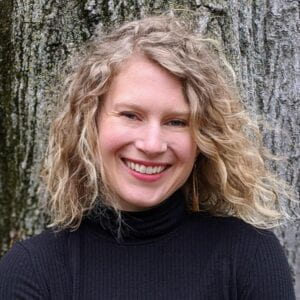
Andrea Marston is an Assistant Professor in the Department of Geography at Rutgers University. Her scholarship explores the politics of resource governance in Latin America, with a focus on resource materialities and extractive technologies. Her forthcoming book, Thieves of Patria: Subterranean Matters in Plurinational Bolivia, examines the relationship between subterranean space, resource nationalism, and small-scale mining in Bolivia. Related articles also appear journals such as the Annals of the American Association of Geographers, Latin American Perspectives, and Political Geography, among others. More recently, she is studying how extractive technologies, including machinic, legal, and financial technologies, are contributing to the reconfiguration of Latin America’s mining sector in the context of the renewable energy transition.
Nate Millington
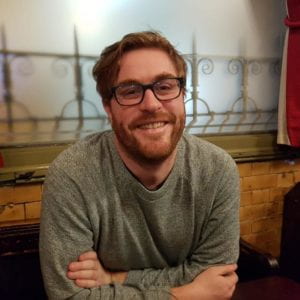 Nate Millington is Presidential Fellow in Urban Studies in the Department of Geography and the Manchester Urban Institute at the University of Manchester. His research is focused on the politics of the urban environment in an era of climate crisis, with particular interests in the governance of water and waste. Nate was previously a postdoctoral fellow with the African Centre for Cities at the University of Cape Town and a visiting researcher at the University of São Paulo, and he has conducted extensive research in São Paulo, Brazil and in South Africa. His current research is dedicated to understanding the relationships between climate crisis, financial capital, and infrastructure in cities marked by intense inequality.
Nate Millington is Presidential Fellow in Urban Studies in the Department of Geography and the Manchester Urban Institute at the University of Manchester. His research is focused on the politics of the urban environment in an era of climate crisis, with particular interests in the governance of water and waste. Nate was previously a postdoctoral fellow with the African Centre for Cities at the University of Cape Town and a visiting researcher at the University of São Paulo, and he has conducted extensive research in São Paulo, Brazil and in South Africa. His current research is dedicated to understanding the relationships between climate crisis, financial capital, and infrastructure in cities marked by intense inequality.
Graham Mooney
 Graham Mooney PhD, is an Associate Professor in the Department of the History of Medicine, Johns Hopkins University, with an adjunct appointment in the Department of Epidemiology, Bloomberg School of Public Health. Originally a geographer, he has interests in the history of public health and infectious diseases in Europe and North America. He is currently working on two book projects. Harm City: Health and Injustice in Urban America is a case study of race and class politics in Baltimore that explores the fracturing of public health systems and policy in neo-liberalizing American cities. Spatial Histories of Modern Medicine: Using Space and Place to Understand the Past considers how the characteristics of space and place influence healing practices, and how the practice of medicine produces particular kinds of place and space.
Graham Mooney PhD, is an Associate Professor in the Department of the History of Medicine, Johns Hopkins University, with an adjunct appointment in the Department of Epidemiology, Bloomberg School of Public Health. Originally a geographer, he has interests in the history of public health and infectious diseases in Europe and North America. He is currently working on two book projects. Harm City: Health and Injustice in Urban America is a case study of race and class politics in Baltimore that explores the fracturing of public health systems and policy in neo-liberalizing American cities. Spatial Histories of Modern Medicine: Using Space and Place to Understand the Past considers how the characteristics of space and place influence healing practices, and how the practice of medicine produces particular kinds of place and space.
Martin Murrary
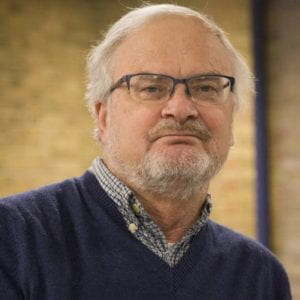 Martin Murray is a tenured full professor of the Taubman College urban planning faculty. He is also Adjunct Professor, Department of Afroamerican and African Studies, University of Michigan. He began his academic career as a sociologist with a strong foundation in urban geography. His current research engages the fields of urban studies and planning, global urbanism, cultural geography, distressed urbanism, development, historical sociology, and African studies. He has published a trilogy of books on space and power in Johannesburg. His book, entitled The Urbanism of Exception: The Dynamics of Global City Building in the Twenty First Century (New York: Cambridge University Press, 2016) focuses on zones, spaces of exception, and boundary-making in the understanding of global urbanism at the start of the 21st century. His most recent book, entitled Many Urbanisms: Divergent Trajectories of Global City Building (New York: Columbia University Press, 2022), traces four relatively autonomous pathways that characterize global urbanism. His most recent research examines patterns of ruination in five distressed neighborhoods in Detroit.
Martin Murray is a tenured full professor of the Taubman College urban planning faculty. He is also Adjunct Professor, Department of Afroamerican and African Studies, University of Michigan. He began his academic career as a sociologist with a strong foundation in urban geography. His current research engages the fields of urban studies and planning, global urbanism, cultural geography, distressed urbanism, development, historical sociology, and African studies. He has published a trilogy of books on space and power in Johannesburg. His book, entitled The Urbanism of Exception: The Dynamics of Global City Building in the Twenty First Century (New York: Cambridge University Press, 2016) focuses on zones, spaces of exception, and boundary-making in the understanding of global urbanism at the start of the 21st century. His most recent book, entitled Many Urbanisms: Divergent Trajectories of Global City Building (New York: Columbia University Press, 2022), traces four relatively autonomous pathways that characterize global urbanism. His most recent research examines patterns of ruination in five distressed neighborhoods in Detroit.
Raul Pacheco-Vega

Dr. Raul Pacheco-Vega is an Associate Professor in the Methods Lab of the Latin American Faculty for Social Sciences (Facultad Latinoamericana de Ciencias Sociales, FLACSO) Sede México. He is a specialist in comparative public policy and focuses on North American environmental politics, primarily sanitation and water governance, solid waste management, neoinstitutional theory, transnational environmental social movements and experimental methods in public policy. He is a member of the Mexican National Researchers’ System (SNI), and holds the distinction of National Researcher Level 1.
Aparna Parikh
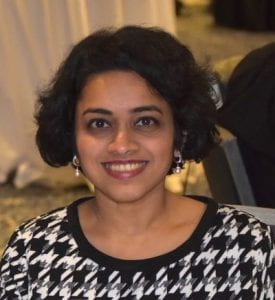
Aparna Parikh is a feminist urban geographer and an Assistant Teaching Professor at the Pennsylvania State University. Her work focuses on gendered dimensions of urban environmental belonging in South Asian cities. Parikh’s ongoing projects in Mumbai include feminist investigations of indigenous urban worlds and on housing challenges in light of authoritarian vegetarianism in India. She is also involved in collaborative projects on urban climates and on critical visual methods. Her work has been published in Gender, Place and Culture, cultural geographies, ACME: An International Journal for Critical Geographies, Environment and Planning C, GeoHumanities, Environment and Planning D, and she has chapters in The Routledge Companion to Modernity, Space and Gender and in Suffragette City: Women, Politics, and the Built Environment.
Lily Baum Pollans

Lily Baum Pollans is an assistant professor of urban policy and planning at Hunter College. She is interested in the ways that cities resist the extraction, consumption, and pollution demanded by our current economic system. In her work, she traces the complications and potential that such urban-scale resistance generates, and finds reason for optimism in some subtle, yet radical, choices that city governments are making around the world. In her current work, Lily examines increasingly aggressive attempts by municipalities to change consumption patterns through institutional and infrastructural transformation of solid waste governance. Her work has been published in several journals, including Environment and Planning A, and Environmental Policy and Planning. She recently completed the manuscript for a new book, Resisting Garbage.
Vyjayanthi Rao

Vyjayanthi V. Rao, PhD, Co-director, is an anthropologist by training. Prior to joining Terreform, she held research and teaching positions at The New School for Social Research and at University of Chicago, where she also received her doctorate. From 2002 to 2004 she served as the Research Director of the Initiative on Cities and Globalization, Yale University, and as the Co-Director of Partners for Urban Knowledge, Action and Research (PUKAR), an innovative urban laboratory in Mumbai, India. Her current work focuses on cities after globalization, specifically on intersections of urban planning, design, art, violence, and speculation. She authored many articles on these topics in noted journals, the co-editor of Speculation, Now: Essays and Artwork (Duke University Press, 2015) and is completing a manuscript on the spatial transformation of Mumbai.
Jacob Remes

Jacob Remes is a labor and working-class historian of North American, with a focus on urban disasters, working-class organizations, and migration. He is the editor, with Andy Horowitz, of Critical Disaster Studies (University of Pennsylvania Press, 2021), and the author of Disaster Citizenship: Survivors, Solidarity, and Power in the Progressive Era (University of Illinois Press, 2016). He is also a co-editor of the Penn Press book series Critical Studies in Risk and Disaster. He is a clinical associate professor at New York University’s Gallatin School of Individualized Study and associated faculty in the Department of History.
Joshua Reno
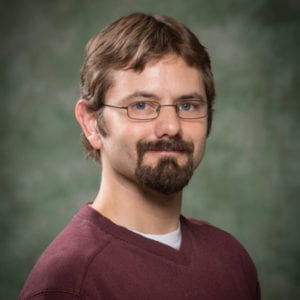 Josh Reno is Professor in the Department of Anthropology at Binghamton University. He is the author of “Waste Away: Working and Living with a North American Landfill” (2016), “Military Waste: The Unexpected Consequences of Permanent War Readiness” (2019) and, with Britt Halvorson, “Imagining the Heartland: White Supremacy and the American Midwest”(2022), all published by University of California Press. He is a socio-cultural anthropologist and his research interests mostly concern various forms of waste—municipal, mammalian, and militaristic—and their impact on lives, economies, and social movements in the U.S. He has also done research and written in the fields of critical disability studies, bio-semiotics, and critical race theory. His most recent work focuses on the slippage between leisure time and unpaid labor in American life, including activities that are widely considered somehow “productive,” such as going to the gym, and those that are considered “wastes of time,” such as playing video games.
Josh Reno is Professor in the Department of Anthropology at Binghamton University. He is the author of “Waste Away: Working and Living with a North American Landfill” (2016), “Military Waste: The Unexpected Consequences of Permanent War Readiness” (2019) and, with Britt Halvorson, “Imagining the Heartland: White Supremacy and the American Midwest”(2022), all published by University of California Press. He is a socio-cultural anthropologist and his research interests mostly concern various forms of waste—municipal, mammalian, and militaristic—and their impact on lives, economies, and social movements in the U.S. He has also done research and written in the fields of critical disability studies, bio-semiotics, and critical race theory. His most recent work focuses on the slippage between leisure time and unpaid labor in American life, including activities that are widely considered somehow “productive,” such as going to the gym, and those that are considered “wastes of time,” such as playing video games.
Elana Resnick

Elana Resnick is an Assistant Professor in the Department of Anthropology at the University of California, Santa Barbara. She received her Ph.D. at the University of Michigan, Ann Arbor. She is currently working on a book manuscript, “Alchemy at Its Limits: Waste, Race, and Radical Transformation.” Based on over three consecutive years of fieldwork in Bulgaria conducted on city streets, in landfills, Romani neighborhoods, executive offices, and at the Ministry of the Environment, the book examines the juncture of material waste management and racialization. She is also the founder and director of the Infrastructural Inequalities Research Group at UCSB. Her research has been funded by the Woodrow Wilson Center, the Council for European Studies, the School for Advanced Research, the Council for European Studies, Fulbright- Hays, the Carsey-Wolf Center, American Councils, and the Wenner-Gren Foundation.
Katherine Sammler
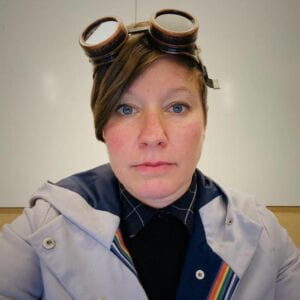
Dr. Katherine Sammler is a human geographer, with a background in atmospheric science and physics. Leading the Marine Political Ecology group at the Helmholtz-Institute for Functional Marine Biodiversity (HIFMB) – in partnership with the Alfred Wegener Institute for Polar and Marine Research (AWI) and University of Oldenburg in Germany – they conduct research at the intersection of science and politics in the realm of oceans, atmospheres, and outer space. In all areas, their work considers the role of knowledge, law, and power in defining global commons, access, and environmental justice. They have published on the politics of shifting borders due to sea level rise, and astronomy and space infrastructure in relation to settler colonial observation and occupation.
Basak Saraç-Lesavre

Başak Saraç-Lesavre engages with the remains of the nuclear age and interrogates conflicting and competing meanings of the term “responsible action” in an era marked by concerns about human intervention in geological time. Her research lies at the intersection of STS, anthropology, human geography and economic sociology. Başak obtained her PhD from the Centre de Sociologie de l’Innovation at the Ecole Nationale Supérieure des Mines de Paris. In her thesis, she analysed the trials of contemporary American society with its nuclear waste – a material that will remain radioactive for a million years–. She is currently a research fellow at the University of Manchester in the Department of Social Anthropology, where she is working on the uses of robotic technologies for the cleaning up of one of the world’s most complex sites of nuclear containment; Sellafield (UK).
Antina von Schnitzler
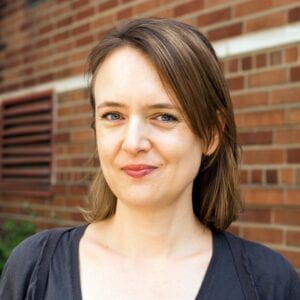 Antina von Schnitzler is an Associate Professor of International Affairs and Anthropology at The New School. Her first book Democracy’s Infrastructure: Techno-Politics and Protest after Apartheid (Princeton University Press, 2016) examined apartheid’s techno-political legacies and how seemingly mundane technological domains become charged territory for struggles over South Africa’s political transformation. The book received an honorable mention in the Association for Political and Legal Anthropology Book Prize competition in 2017. She is currently working on two projects related to the politics of energy: One on the political life of coal in South Africa, and another one on the politics of climate change adaptation and mitigation in New York City. She has been a Fellow at the Kellogg Institute for International Studies, University of Notre Dame, and a Research Associate at the Wits Institute for Social and Economic Research (WiSER), University of the Witwatersrand, Johannesburg.
Antina von Schnitzler is an Associate Professor of International Affairs and Anthropology at The New School. Her first book Democracy’s Infrastructure: Techno-Politics and Protest after Apartheid (Princeton University Press, 2016) examined apartheid’s techno-political legacies and how seemingly mundane technological domains become charged territory for struggles over South Africa’s political transformation. The book received an honorable mention in the Association for Political and Legal Anthropology Book Prize competition in 2017. She is currently working on two projects related to the politics of energy: One on the political life of coal in South Africa, and another one on the politics of climate change adaptation and mitigation in New York City. She has been a Fellow at the Kellogg Institute for International Studies, University of Notre Dame, and a Research Associate at the Wits Institute for Social and Economic Research (WiSER), University of the Witwatersrand, Johannesburg.
Marisa Solomon
Marisa Solomon is an Assistant Professor of Women’s, Gender and Sexuality Studies at Barnard College. Her work looks at the durability of racism and its many material forms: toxicity’s movement through soil and bodies, the placement of landfills, waste infrastructure, and the technocratic planning and management of Black life and death. Attentive to the ways coloniality and anti-blackness are sedimented into the landscape, her work focuses on how Black improvisation with waste’s form and meaning upend environmental thinking. She has published on the materiality of waste and anti-Black histories in the Journal of International Labor and Working-Class History, Catalyst, SSQ, GLQ. She is the co-director of the Black Atlantic Ecologies project at the Columbia University Center for the Study of Social Difference, where she is affiliated with the Earth Institute.
Alex Souchen
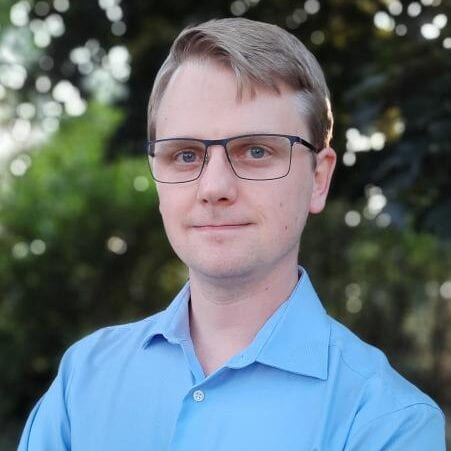
Alex Souchen is an Assistant Professor at the University of Guelph, cross-appointed between the Department of History and Bachelor of Arts and Science Program. He is the author of War Junk: Munitions Disposal and Postwar Reconstruction in Canada (University of British Columbia Press, 2020), and is co-editor of a forthcoming book on Canada’s military-industrial complex. His research explores the history of science and technology, warfare and militarization, and the environmental impact of munitions disposal. You can follow him on Twitter.
Sophia Stamatopoulou-Robbins
Sophia Stamatopoulou-Robbins is Associate Professor of Anthropology at Bard College. Her interests include infrastructure, waste, environment, platform capitalism, and the home. Her first book, Waste Siege: The Life of Infrastructure in Palestine (Stanford, 2019), has won five major book awards and examines waste management in the absence of a state. Her current book, Controlled Alienation: Airbnb and the Future of Home (under contract with Duke) explores the joint world-making of austerity and home-sharing in Greece. She serves on the editorial teams of Cultural Anthropology and MERIP. More on her scholarship and film-making can be found here: https://sophiastamatopoulourobbins.com/.
Amy Zhang

Amy Zhang is an assistant professor of anthropology at New York University where she researches and teaches in the areas of environmental anthropology, science and technology studies, material culture and development. She is currently working on a book project on state efforts to modernize waste management infrastructures and how these attempts ground and condition the forms and limits of China’s emerging urban environmental politics.
Carl A. Zimring
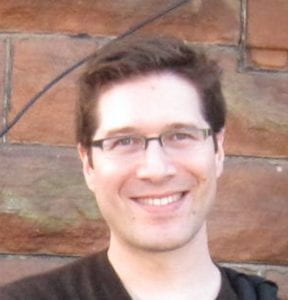
Carl A. Zimring is Professor of Sustainability Studies in the Department of Social Science and Cultural Studies at Pratt Institute. An environmental historian interested in how waste management practices shape society, culture, institutions, and inequalities, Dr. Zimring has served on the board of directors of the Chicago Recycling Coalition and been founding faculty of sustainability studies programs at both Pratt and Roosevelt University. His books include Cash for Your Trash: Scrap Recycling in America (Rutgers University Press, 2005), The Encyclopedia of Consumption and Waste: The Social Science of Garbage (edited with William L. Rathje, Sage, 2012), Clean and White: A History of Environmental Racism in the United States (NYU Press, 2015), Aluminum Upcycled: Sustainable Design in Historical Perspective (Johns Hopkins University Press, 2017), and Technology and the Environment in History (written with Sara B. Pritchard, Johns Hopkins University Press, 2020).



